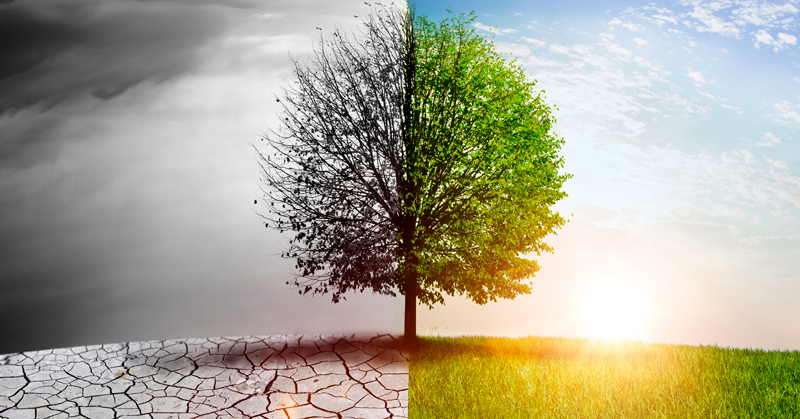Protecting the natural environment is clearly a concern for students, with a 2021 survey highlighting that nearly 60 per cent of young people are worried about climate change. Campaigners such as Bear Grylls, Chris Packham and David Attenborough have all called for environmental studies to be embedded into student learning; prompting the creation of the Natural History GCSE, which will be launched for first teaching in September 2025 – the first new qualification to be introduced since 2018.
However, this is not a new subject at Impington International College. Our students learn about protecting the environment throughout their entire International Baccalaureate (IB) education. In fact, a shared guardianship for the planet has underpinned the IB for as long as I’ve taught it. Develop inquiring, knowledgeable and caring young people with a focus on interconnectedness which extends beyond the individual and encompasses the community and the planet is core to its mission.
Unlike the UK national curriculum, IB students learn about their relationship with the world and the impact they have on the planet from the beginning of their journey. Throughout the Primary Years Programme (PYP), students learn about the environment through transdisciplinary themes such as sharing the planet. This learning is consolidated during the Middle Years Programme (MYP), when subject learning is grounded in real-life contexts that encourage students to create connections between their classroom learning and six related concepts, one of which is sustainability. Once our students reach the Diploma Programme (DP), they have been engaged with learning about the environment for many years and this learning becomes more focused and scientific. It is at this stage that they can choose to study the Environmental Systems and Societies course.
We introduced this course at Impington International College eight years ago, and it has exploded in popularity over the past three years; a testament to the importance young people place on understanding sustainability and the environment. On the course, they learn about water sustainability, climate change, human resources and ecosystems and other topical areas of concern.
Climate change cannot be siloed into one subject
Importantly, each student chooses their own topics, frames their own research and designs their own experiments for internal assessment to combine theoretical knowledge with practical application. Giving students the freedom to explore their own areas of interest shapes their future studies and sparks their curiosity in career paths that they would not have previously considered. The diversity of practical application is reflected in our current cohorts projects: observations on East Anglian soil quality, the feasibility of solar panels in Sutton-on-Isle, and the environmental impact of facemasks.
Crucially, climate change and the wider environment cannot, and should not, be siloed into one subject, like the proposed introduction of the Natural History GCSE. Unlike the national curriculum, the IB provides students with the tools they need to explore the environment, climate change and sustainability within context of their other subjects. The interdisciplinary nature of the IB means that students can create connections between their learning and the real world.
In English, students use examples of Greta Thunberg’s speeches to explore how language can be used to influence change. Meanwhile, the recent climate change protests were an example of the power of rhetoric, with our students exploring whether language or action is a more powerful tool for persuasion in their debate lessons. Interdisciplinary critical thinking is required to comprehend and find solutions for the complicated challenges facing our students in the future, including climate change, agricultural productivity and environmental disruption.
Every young person has the power to create positive change. But the proposed natural history GCSE is unlikely to harness that, and in any case will not be taught for another three years. As the climate change crisis worsens every passing year, why should we wait? Teaching students how they can be more sustainable from 2025 is too little, too late.
Interconnected systems require interconnected solutions, and for over 50 years the IB has been successfully preparing students to meet environmental challenges head on by interweaving the environment, sustainability and climate change across its programmes.
Given four years, the government should surely be able to deliver more than stand-alone syllabus. And if they really can’t, then four years is plenty of time for schools to rethink how they prepare and qualify young people for their future.












I taught land based studies, and tried to include as much sustainable practices as possible. Once the government scraped the course a lot of the kids I taught began misbehaving again. The course allowed kids to work in the outdoors, we were able to get lots of them to respect their environment, I could go on for hours about success stories of teaching this way, but won’t bore you. On the course losing its accreditation I finished teaching, disillusioned with the way education and to be frank the way society was going. Maybe there is hope yet. For your information I taught for almost 20 years have an environmental degree, qualified arborist, and now make a living out of landscaping and timber work.
I searched for Earth science courses for my teenage children when I realised the current curriculum included little to no information on the climate challenges we are facing. How can we expect our youth to enter the world of work or further education with little or no knowledge of these challenges? Add to that, the current economic system is built solidly on the same consumerism model started to build the global economy after the war. Two years ago I became so frustrated I wrote my own education programme which is ready to be piloted right now via MotherOceanBlue. It explains the interconnectedness of the planet and links students with live projects and companies working to solve some of the issues we are dealing with. We just don’t have time to wait another 3 years and our students need all the help we can supply.
Zakia Rashid